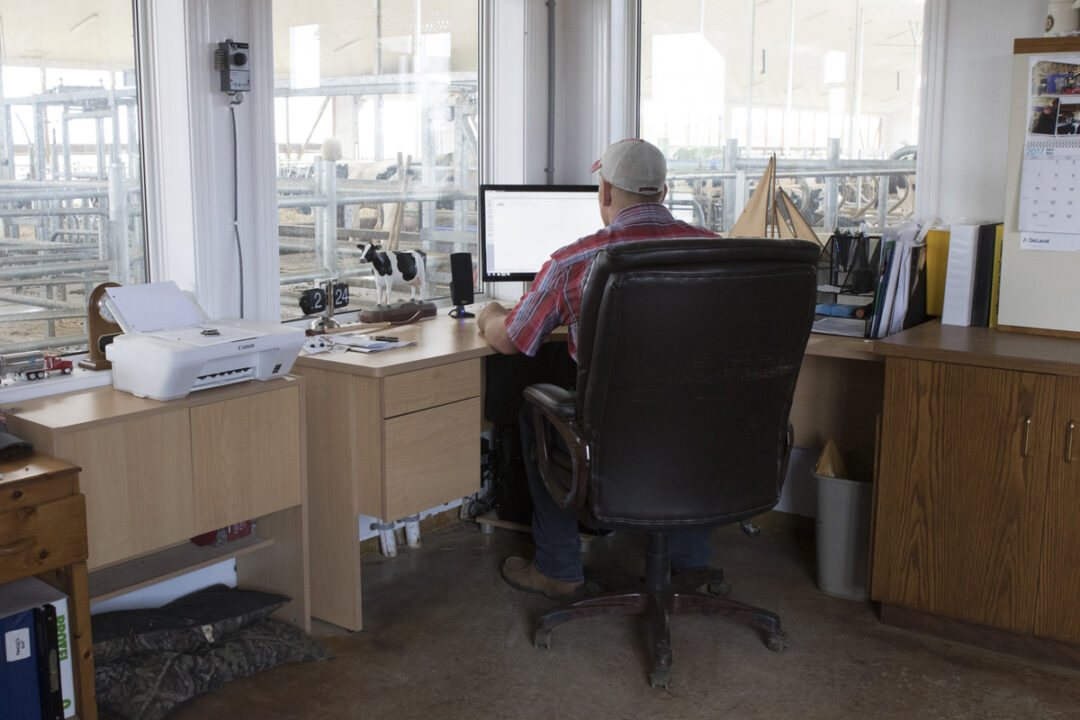To read this in French, click here.
It’s no surprise that farmers’ behavioral health is positively correlated with crop production and healthy animals. But what happens when milk prices crash, there’s a drought, feed prices go sky high and you can’t find good employees? Stress. It’s the body's reaction to any change that requires an adjustment or response.
Stress creates chemical reactions in our bodies, and cortisol is released, our blood thickens, our blood pressure increases and more. Chronic stress can lead to your brain shrinking from the constant flow of cortisol. This clearly illustrates why we need to find ways to release cortisol. Think of cow comfort; if you don’t address stressful transitions (e.g., calving, drying off, moving, etc.), cows don’t perform as well and are at great risk of disease. The same is true for humans.
What are some signs you have too much cortisol from chronic stress? Migraines, racing heart rate, losing appetite, trouble sleeping, loss of sex drive, eating too much, inability to think clearly, poor memory, eating/drinking more, decision fatigue or apathy are on the list. If you’re visiting farms and see a rapid change in a producer’s weight, appearance of farm, irritability or alcohol/drug use – it might be time to talk about stress management.
Before you start poking fun of the idea, I know you can’t control milk prices, Mother Nature, feed prices and many other elements of the dairy business. However, you can take action to manage your cortisol levels – just as you address cow comfort. Stress is what it is; the key is releasing cortisol from your body so you’re not suffering the consequences of chronic stress.
When you consider ways to integrate stress management tactics into your business plan, know that different techniques work for different people – just as cows react differently. Paula Linthicum, who farms in Maryland, uses exercise and planned time away from the farm to decompress and spend time with family. “Home is the farm where we live and work. A place I dearly love, but there is always work to do.”
Kansas farmer Orrin Holle takes the entire family and crew on a guided fishing trip after their highly stressful wheat harvest is complete. “It gets us off the farm for no-stress fishing. The guide provides everything, and we just show up. It allows us to relax and our crew to know they’re appreciated,” he says.
Many farmers point to quiet time. Some like daily time to reflect, pray, have a mindful minute or meditate – all of which help address cortisol. Others prioritize taking Sunday off, aside from chores, as a day of rest and recovery.
Ideas to reduce your stress for you and your team
How can these ideas help you release cortisol or lead your team to better address their stress levels?
Laugh. It’s the most natural stress reliever. Experts recommend you laugh 15 times a day. Engage employees in this for a more joyful workplace. (Happy people work harder, kind of like happy cows.)
Create team meetings where people can openly and honestly share their challenges. It will provide you a window into your employees’ lives – you may learn a partner has been diagnosed with cancer, an elderly parent needs care or their child is struggling. This gives you the opportunity to proactively help your employees and family members address additional stress.
Don’t judge yourself for reactions – stress is a natural occurrence. Be transparent with others to help normalize the conversation around stress and mental well-being.
Change your breath to signal your body to let go of cortisol. For example, try singing at the top of your lungs in the truck, parlor or combine, or yelling at your favorite sports team. Cheering on Michigan State basketball does it for me.
Provide incentives for employees to exercise – even 15 minutes per day will help. They don’t have to join a Zumba class, but getting your heart pumping is a natural way to release cortisol. Lead by example with an active lifestyle.
Create. Cook great food. Craft. Enjoy music – either listening or playing it. Paint. Woodwork. Using your brain to create – even if only 10 minutes – disengages your brain from the stress.
Give employees the opportunity to serve in their community. After losing a longtime employee to suicide, Michigan dairy farmer Ashley Kennedy gives salaried team members a service day or two each year to get off the farm, away from the business. Helping others provides a perspective check, a sense of community and a sense of purpose.
Model self-care
This varies with seasons, but caring for yourself is as important as cow care.
Get enough sleep. I know this is not likely for a dairy farmer, but it is the top way to address mental health issues. And if you have a problem falling or staying asleep for more than two weeks, please see your doctor. You cannot make solid business decisions if you’re not regularly getting at least seven hours of sleep.
Balancing family and personal time with work hours. It is not a badge of honor to work 70 hours per week – you are likely damaging long-term productivity. Sure, this is reality during a rough planting/silage/harvest season, but it should not be the “norm” 52 weeks a year. Remember that happy, productive employees need balance – including business owners.
Eating well. Not perfectly, but do you know what your ration should be as much as you know dairy nutrition? More on that later.
Exercising: Dance in the office, barn or at home (and please send me video – LOL). Take a walk to the back 40. Carry feed bags instead of using equipment. Have a walking daily meeting. Exercise equals cortisol release.
Shut down. Turn it all off and be alone with your thoughts and feelings. This is especially important for introverts.
Step away. Everyone needs to have hobbies, interests and activities away from work – especially business owners. Oregon farmer Kathy Hadley helps sponsor a slow-pitch softball team she also plays on. She admits it irritates her dad and husband when she has to leave for softball, but getting out on the ball field and playing keeps her stress in check. Stepping away from the stress you can’t control often provides the distance for a healthier approach.
How does stress management fit into your business planning?
How it fits into the business planning for our farm depends on your priorities, but many of these ideas can be implemented to reduce cortisol.
Just as cow comfort isn’t an automatic, neither is stress management. Talk about it as you work with your lenders, veterinarians, nutritionists and employees to plan the year ahead. If you’re in a support role, how can you help farmers consider stress management?
What is one step you can take each month of 2023 to reduce cortisol levels in yourself and your team? Now is the best time to plan ahead.






